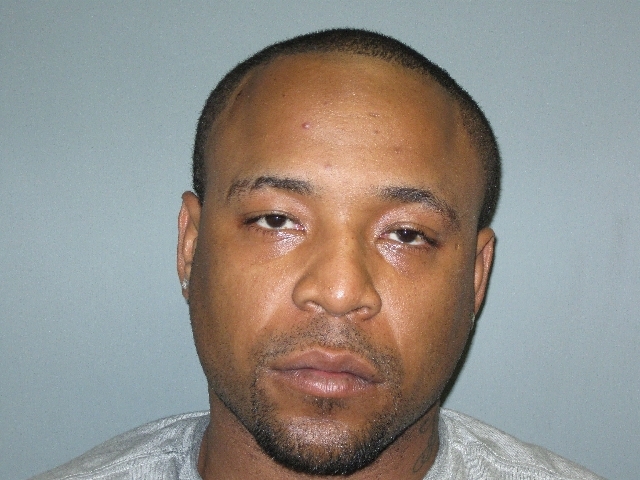Court: Police can take DNA swabs from arrestees


WASHINGTON — A sharply divided Supreme Court on Monday said police can routinely take DNA from people they arrest, equating a DNA cheek swab to other common jailhouse procedures like fingerprinting.
“Taking and analyzing a cheek swab of the arrestee DNA is, like fingerprinting and photographing, a legitimate police booking procedure that is reasonable under the Fourth Amendment,” Justice Anthony Kennedy wrote for the court’s five-justice majority.
But the four dissenting justices said that the court was allowing a major change in police powers.
“Make no mistake about it: because of today’s decision, your DNA can be taken and entered into a national database if you are ever arrested, rightly or wrongly, and for whatever reason,” conservative Justice Antonin Scalia said in a sharp dissent which he read aloud in the courtroom. “This will solve some extra crimes, to be sure. But so would taking your DNA when you fly on an airplane – surely the TSA must know the `identity’ of the flying public. For that matter, so would taking your children’s DNA when they start public school.”
Twenty-eight states and the federal government now take DNA swabs after arrests. But a Maryland court was one of the first to say that it was illegal for that state to take Alonzo King’s DNA without approval from a judge, saying King had “a sufficiently weighty and reasonable expectation of privacy against warrantless, suspicionless searches” under the Fourth Amendment.
But the high court’s decision reverses that ruling and reinstates King’s rape conviction, which came after police took his DNA during an unrelated arrest. Kennedy wrote the decision, and was joined by Chief Justice John Roberts and Justices Samuel Alito, Clarence Thomas and Stephen Breyer. Scalia was joined in his dissent by Justices Ruth Bader Ginsburg, Sonia Sotomayor and Elena Kagan.
The American Civil Liberties Union said the court’s ruling created “a gaping new exception to the Fourth Amendment.”
“The Fourth Amendment has long been understood to mean that the police cannot search for evidence of a crime – and all nine justices agreed that DNA testing is a search – without individualized suspicion,” said Steven R. Shapiro, the group’s legal director. “Today’s decision eliminates that crucial safeguard. At the same time, it’s important to recognize that other state laws on DNA testing are even broader than Maryland’s and may present issues that were not resolved by today’s ruling.”
Maryland’s DNA collection law only allows police to take DNA from those arrested for serious crimes like murder, rape, assault, burglary and other crimes of violence. In his ruling, Kennedy did not say whether the court’s decision limits DNA only to those crimes, but he did note that other states’ DNA collection laws differ from Maryland’s.
Scalia saw that as a flaw. “If you believe that a DNA search will identify someone arrested for bank robbery, you must believe that it will identify someone arrested for running a red light,” he said.
The ruling was praised by the Rape, Abuse and Incest National Network.
“DNA has already aided nearly 200,000 investigations, and thanks to today’s decision it will continue to be a detective’s most valuable tool in solving rape cases,” said Scott Berkowitz, the group’s president and founder. “We’re very pleased that the court recognized the importance of DNA and decided that, like fingerprints, it can be collected from arrestees without violating any privacy rights. Out of every 100 rapes in this country, only three rapists will spend a day behind bars. To make matters worse, rapists tend to be serial criminals, so every one left on the streets is likely to commit still more attacks. DNA is a tool we could not afford to lose.”
Getting DNA swabs from criminals is common. All 50 states and the federal government take cheek swabs from convicted criminals to check against federal and state databanks, with the court’s blessing. The fight at the Supreme Court was over whether that DNA collection could come before conviction and without a judge issuing a warrant.
According to court documents, the FBI’s Combined DNA Index System or CODIS – a coordinated system of federal, state and local databases of DNA profiles – already contains more than 10 million criminal profiles and 1.1 million profiles of those arrested. According to the FBI, DNA from people who have gotten the charge dismissed, who were acquitted or from whom no charges were brought are supposed to be expunged from the federal system. But states and other municipalities that collect DNA make their own rules about what happens to their collection.
Kennedy called collecting DNA useful for police in identifying individuals.
“The use of DNA for identification is no different than matching an arrestee’s face to a wanted poster of a previously unidentified suspect; or matching tattoos to known gang symbols to reveal a criminal affiliation; or matching the arrestee’s fingerprints to those recovered from a crime scene,” Kennedy said. “DNA is another metric of identification used to connect the arrestee with his or her public persona, as reflected in records of his or her actions that are available to police.”
In the case before the court, a 53-year-old woman was raped and robbed but no one was arrested. Almost six years later, Alonzo King was arrested and charged with felony second-degree assault. Taking advantage of the Maryland law that allowed warrantless DNA tests following some felony arrests, police took a cheek swab of King’s DNA, which matched a sample from the 2003 Salisbury rape. King was convicted of rape and sentenced to life in prison.
King eventually pleaded guilty to a lesser charge of misdemeanor assault from his arrest, a crime for which Maryland cannot take warrantless DNA samples. The state courts said it violated King’s rights for the state to take his DNA based on an arrest alone. The state Court of Appeals said King had “a sufficiently weighty and reasonable expectation of privacy against warrantless, suspicionless searches.” But the high court’s decision reinstates King’s conviction.
Maryland stopped collecting DNA after that decision, but Roberts allowed police to keep collecting DNA samples pending the high court’s review.
The case is Maryland v. King, 12-207.
The FBI’s frequently asked questions about its DNA databases












